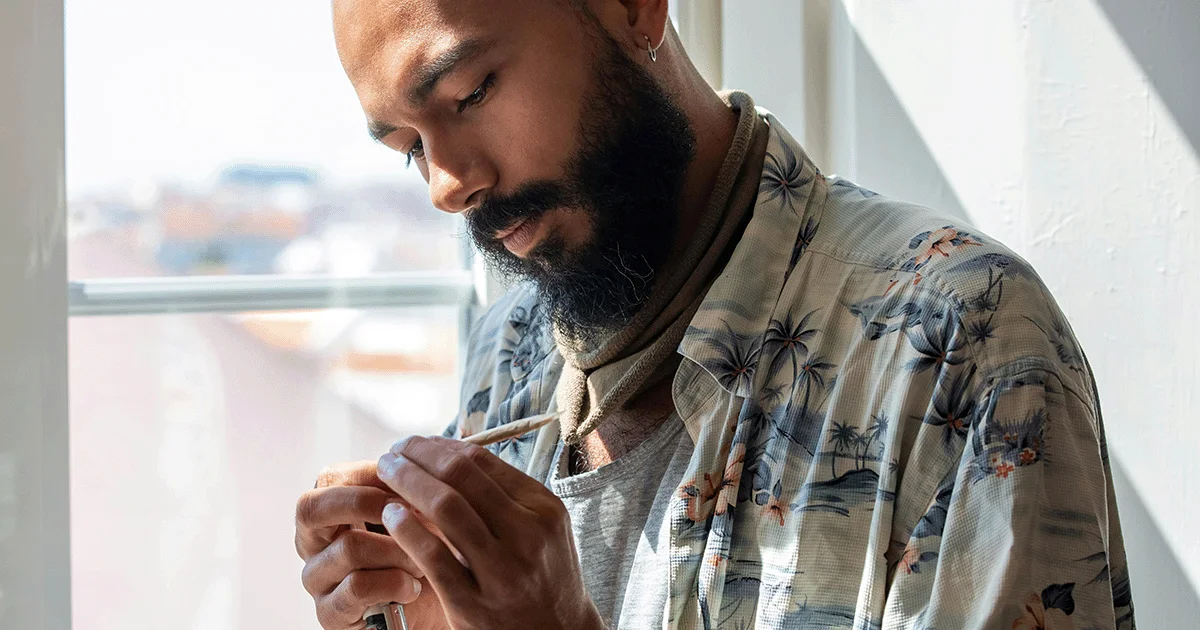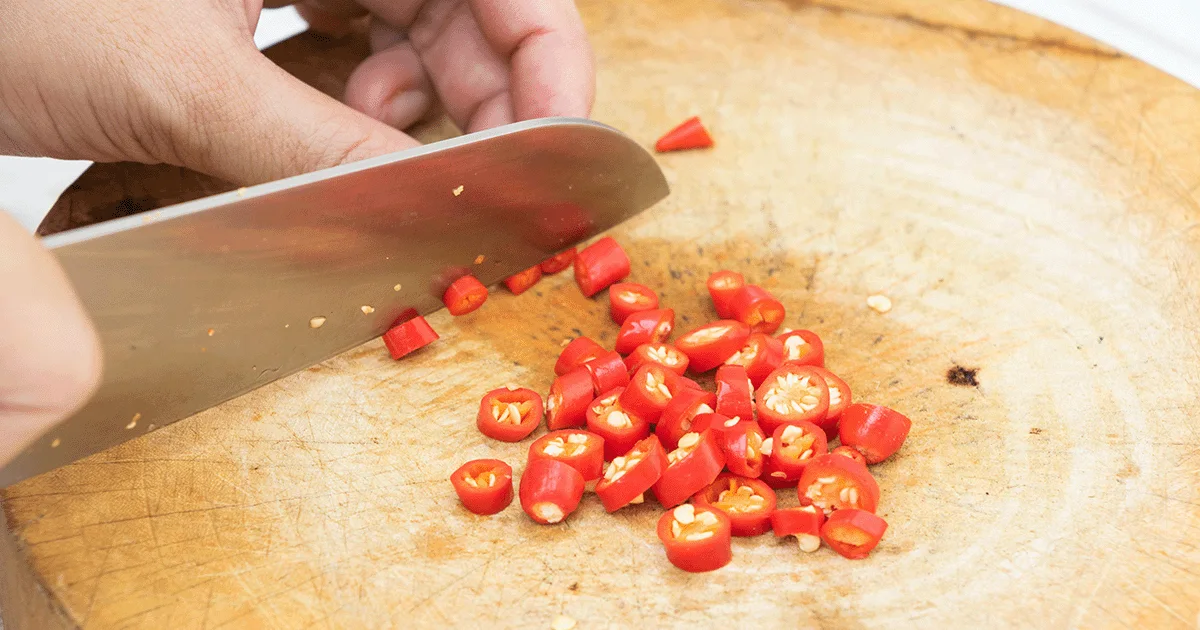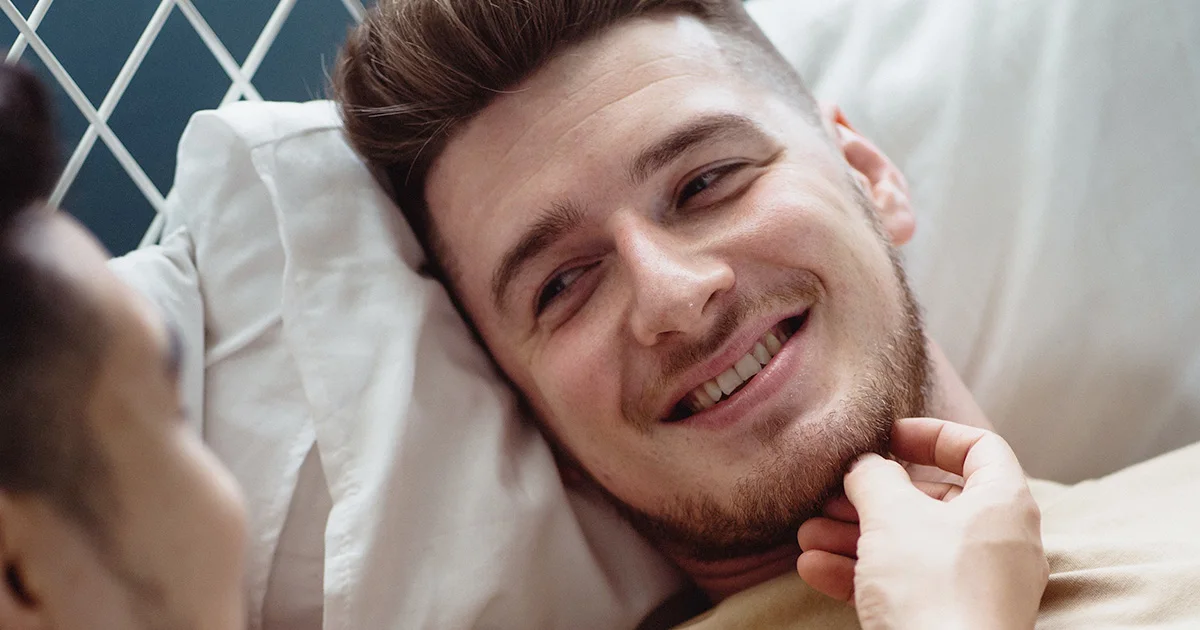Key takeaways
Your diet, how much you exercise, and even how much alcohol you drink can all affect your ability to get an erection when you want one.
Taking care of any underlying medical conditions, like diabetes or heart disease, can also affect blood flow to the penis, making it easier to get hard.
Here's what we'll cover
Key takeaways
Your diet, how much you exercise, and even how much alcohol you drink can all affect your ability to get an erection when you want one.
Taking care of any underlying medical conditions, like diabetes or heart disease, can also affect blood flow to the penis, making it easier to get hard.
Struggling to get erections that are hard enough and last long enough for satisfying sex? You’re certainly not alone, and there are many effective treatments available, but you might not be ready to think about medication just yet.
Are there effective ways to get hard naturally, without popping a pill? Actually, yes. There are quite a few things you can do on a daily basis that will make it easier to get and keep an erection while getting you healthier at the same time.
Read on to learn what steps you can take to get harder and longer-lasting erections naturally—and what to do if all else fails.
How to get an erection without medication
Getting hard can be surprisingly complicated. Your head, heart, hormones, blood vessels, and so much more have to work together to pull off what many take for granted: an erection. So, don't be bummed if things don't always go as planned. It happens. The good news is that taking care of your body can make a real impact on naturally improving your erections.
When it comes to getting harder and longer-lasting erections, long-term lifestyle changes are a great choice. Exercise and diet, among other ways to get an erection sans meds, may be easier next steps than you think. (And, at the end of the day, there’s no shame in getting a little help from medications, too.)
1. Get treatment for underlying conditions
Since your blood vessels need to deliver blood to your penis to create a firm erection, any disruption in blood flow to your penis can make it hard to get… hard.
If you have a personal or family history of heart disease, getting a regular check-up with your primary care provider or getting seen by a specialist might be the first step in determining if you have an underlying issue.
Your doctor will also be able to evaluate you for any conditions that can affect nerve function, such as diabetes. Diabetes and prediabetes are very common and frequently underdiagnosed, and they can result in high levels of sugar in your bloodstream, which can damage the nerves that play an outsized role in getting an erection.
Finally, if you have overweight or obesity, you’re more likely to have erectile dysfunction (ED). So weight management, in addition to its benefits for your heart and other systems, can offer the added benefit of a better time in the bedroom.
2. Stop or limit smoking and alcohol
Also important to consider? Habits such as cigarette and marijuana smoking and alcohol consumption. Definitive research is still (surprisingly) a little murky on the relationship between alcohol consumption and erectile dysfunction. However, most healthcare providers will agree that moderation is a good idea when it comes to alcohol.
In the long term, heavy alcohol use damages the blood vessels, boosting the chances of ED. In the short term, it depresses your central nervous system, which can sometimes help decrease inhibition but you can also run the risk of potentially decreasing overall arousal.
For most men, having one drink won't impact sexual performance in any meaningful way. However, it’s a good idea to limit yourself to a max of two drinks before sexual activity, especially if you’ve experienced erectile dysfunction in the past. And drinking heavily while taking ED medication is not advised because of the risk of low blood pressure and increased risk of side effects like headache.
While the exact connection between marijuana and tobacco use and erectile dysfunction remains unclear, there have been multiple studies that indicate that ED is more common among people who use marijuana regularly, and there’s good evidence that smoking cigarettes decreases sexual function. So if you’re having trouble getting it up, scaling back in the smoking department might help. With tobacco in particular, extensive blood vessel damage is a known effect of chronic smoking, and without proper blood flow, erectile strength can be curbed.
3. Exercise more frequently
You've likely heard this one before: Exercise is good for you. And while it may seem like boring medical advice to tell you to exercise regularly, cardiovascular health and erections are intimately linked, and exercise can help both.
The blood vessels in your penis are smaller and narrower than the arteries in other parts of your body. What that means is that they’ll be among the first to clog. The first sign of high blood pressure, heart disease, high cholesterol, and clogged arteries may not be a stroke or a heart attack. It could be erectile dysfunction.
Studies link atherosclerosis—the buildup of fat, cholesterol and calcium placques in your blood vessels—to erectile dysfunction. Diabetes, high blood pressure, obesity, and high cholesterol increase the risk for atherosclerosis and erectile dysfunction.
The good news is regular physical activity reduces your risk for cardiovascular disease and for ED. Talk about a good reason to sweat through a spin class!
And don’t worry, you don't have to turn into a gym rat to see results—just incorporate a few daily activities into your routine. About 30 minutes of moderate-intensity exercise a day seems to be the magic number, and it's easier to do this than you think:
Park in that faraway spot that nobody wants. You'll add a few minutes to your morning walk, and you'll also be the office hero. People will throw a parade in your honor! (Okay, maybe not, but if they do, opt to walk in the parade rather than riding on a float).
Take the stairs instead of the elevator. Get familiar with all the fire exits in your workplace while getting your heart pumping.
Take a walk whenever you make a phone call. It's called a mobile phone for a reason, so get up and get the blood pumping during your next quarterly recap or big sales call.
Adding a few minutes of exercise to your day can add years to your life—literally. And if that exercise results in stronger, more frequent erections, that's a win-win.
4. Change your diet
When it comes to erections, you are what you eat. (Maybe that eggplant emoji is secretly genius.) To be fair, no food can fix erectile dysfunction. Still, a healthy diet can help manage risk factors for atherosclerosis, obesity, high blood pressure, and diabetes, which may also help stave off erection problems.
Some research has shown that a Mediterranean diet, including fruits, vegetables, and healthy fats, is associated with a lower risk of ED. The added bonus about eating a healthy diet is that you don't necessarily have to lose weight to get better erections. You just have to improve the quality of the food you eat.
Several large, peer-reviewed studies have linked a healthy diet to reduced risk for ED—not to mention other conditions, such as type 2 diabetes and obesity. The secret is increasing fruits, veggies, and whole grains while reducing fats, processed foods, sugars, and red meat.
But rather than try to change all your habits overnight, take small steps you can sustain and build upon. For example, maybe you skip that third sugar in your morning coffee. Or make the switch from regular soda to diet. Regarding meals, consider replacing half of your red meat with a vegetable or swapping out beef with chicken or fish once a week.
Everyone is different, so not every diet will work for you. You can experiment with plans like the Mediterranean diet, or just follow these guidelines to find a hybrid eating plan that works for you. But remember, start small. Don't try to change everything about your habits in one huge overhaul.
Eat more of these:
Fruits
Vegetables
Whole grains
Legumes
Eat less of these:
Red meat (processed and unprocessed)
Processed foods
High-sugar drinks (like soda)
5. Get better sleep
If you haven’t been prioritizing getting a good night’s sleep, now’s the time to change that. Research suggests that poor sleep and ED go hand in hand. Sleep disorders such as obstructive sleep apnea and restless leg syndrome have both been linked to ED.
Even if you don’t have a sleep disorder, poor sleep may be contributing to your ED. One study found that men with ED were more likely to score lower on several measures related to sleep health, including:
How long it took them to fall asleep
Total sleep time
Total time spent in deep sleep
Total time spent in rapid eye movement (REM) sleep
A growing body of evidence suggests short sleep (regularly getting 6 or fewer hours of sleep) in general may be a risk factor for ED. It’s also linked to many of the health issues that can contribute to ED, such as heart disease and obesity.
Getting better sleep may not only improve your erections, but your overall health as well. So, do what you can to get a healthy 7–9 hours of sleep per night, starting with going to bed early enough to get that much sleep. Other sleep hygiene tips include:
Avoiding naps during the day
Limiting your caffeine intake in the evening
Exercising regularly
Getting enough sunlight during the day
Limiting your screen time before bed
6. Manage your stress
ED on its own is stressful enough, but here’s one more thing to stress about: the more stressed out you are, the harder it may be to get hard. Stress and mental health disorders, such as depression and anxiety, have a strong overlap with ED. One small study even found a correlation between burnout and sexual dysfunction in men.
Men with anxiety disorders have a higher likelihood of developing more severe ED, in part due to the medications they may take to manage their anxiety.
If your stress is disrupting your daily life, get help. Cognitive behavioral therapy can help you better manage your stress, anxiety, and depression. At home, you can also practice stress management techniques to ease your mind and help you relax. These may include:
Deep breathing exercises
Progressive muscle relaxation
Guided imagery or visualization
Meditation
7. Try pelvic floor exercises
Pelvic floor exercises, sometimes referred to simply as kegels, may also help you get harder erections without medication, according to a meta review of 10 studies. In one study, 87% of men with ED experienced harder erections after 20 sessions of pelvic floor exercises, though different studies of similar interventions showed varying results.
Here’s how to perform pelvic floor exercises:
Tense up as if you were trying to stop yourself from peeing or passing gas. The muscles you’re contracting are your pelvic floor.
Hold the contraction for three seconds.
Release and relax for three seconds.
Repeat for 10–15 reps.
Experts recommend performing kegels three times a day, for about 5 minutes each session.
The hard truth about hard erections
While we wish we could wave a magic wand and help you get and maintain an erection for 30 minutes (or however long you and your partner would like for satisfying sex), the natural path to hard erections takes a bit of work.
That’s because fixing your erections from the inside out is really all about taking care of your health. You can never go wrong with a healthy diet, exercise, stress maintenance, and better sleep hygiene—but it’s no secret these efforts take… well… effort.
If you need some extra help with your erections while you tackle your underlying health, medications like Viagra work very well for most men.
There’s no shame in getting some extra help, and Ro makes it easy to get that help discreetly and safely from the comfort of your own home.
DISCLAIMER
If you have any medical questions or concerns, please talk to your healthcare provider. The articles on Health Guide are underpinned by peer-reviewed research and information drawn from medical societies and governmental agencies. However, they are not a substitute for professional medical advice, diagnosis, or treatment.
Viagra Important Safety Information: Read more about serious warnings and safety info.
Cho, J. W. & Duffy, J. F. (2019). Sleep, Sleep Disorders, and Sexual Dysfunction. The World Journal of Men's Health, 37(3), 261–275. doi: 10.5534/wjmh.180045. Retrieved from https://www.ncbi.nlm.nih.gov/pmc/articles/PMC6704301/
Di Francesco, S. & Tenaglia, R. L. (2017). Mediterranean diet and erectile dysfunction: a current perspective. Central European Journal of Urology, 70(2), 185–187. doi: 10.5173/ceju.2017.1356. Retrieved from https://pubmed.ncbi.nlm.nih.gov/28721287/
Duca, Y., Calogero, A. E., Cannarella, R., Giacone, F., et al. (2019). Erectile dysfunction, physical activity and physical exercise: Recommendations for clinical practice. Andrologia, 51(5), e13264. doi: 10.1111/and.13264. Retrieved from https://pubmed.ncbi.nlm.nih.gov/30873650/
Ibrahim, A. (2018). Erectile dysfunction and ischaemic heart disease. European Cardiology, 13(2), 98–103. doi: 10.15420/ecr.2017.21.3. Retrieved from https://www.ncbi.nlm.nih.gov/pmc/articles/PMC6331774/
Kohn, T. P., Kohn, J. R., Haney, N. M., et al. (2020). The effect of sleep on men's health. Translational Andrology and Urology, 9(Suppl 2), S178–S185. doi: 10.21037/tau.2019.11.07. Retrieved from https://www.ncbi.nlm.nih.gov/pmc/articles/PMC7108988/
Lavoisier, P., Roy, P., Dantony, E., et al. (2014). Pelvic-floor muscle rehabilitation in erectile dysfunction and premature ejaculation. Physical Therapy, 94(12), 1731–1743. doi: 10.2522/ptj.20130354. Retrieved from https://academic.oup.com/ptj/article/94/12/1731/2741899?login=false
Li, S., Song, J. M., Zhang, K., & Zhang, C. L. (2021). A meta-analysis of erectile dysfunction and alcohol consumption. Urologia Internationalis, 105(11-12), 969–985. doi: 10.1159/000508171. Retrieved from https://karger.com/uin/article/105/11-12/969/829299/A-Meta-Analysis-of-Erectile-Dysfunction-and
Mima, M., Huang, J. B., Andriole, G. L., et al. (2022). The impact of smoking on sexual function. BJU international, 130(2), 186–192. doi: 10.1111/bju.15711. Retrieved from https://pubmed.ncbi.nlm.nih.gov/35166438/
Myers, C. & Smith, M. (2019). Pelvic floor muscle training improves erectile dysfunction and premature ejaculation: a systematic review. Physiotherapy, 105(2), 235–243. doi: 10.1016/j.physio.2019.01.002. Retrieved from https://pubmed.ncbi.nlm.nih.gov/30979506/
National Institute of Diabetes and Digestive and Kidney Diseases (NIDDK). (2021). Kegel Exercises. National Institutes of Health. Retrieved May 21, 2024 from https://www.niddk.nih.gov/health-information/urologic-diseases/kegel-exercises
Papaefstathiou, E., Apostolopoulou, A., Papaefstathiou, E., et al. (2020). The impact of burnout and occupational stress on sexual function in both male and female individuals: a cross-sectional study. International Journal of Impotence Research, 32(5), 510–519. doi: 10.1038/s41443-019-0170-7. Retrieved from https://pubmed.ncbi.nlm.nih.gov/31243355/
Pizzol, D., Demurtas, J., Stubbs, B., et al. (2019). Relationship Between Cannabis Use and Erectile Dysfunction: A Systematic Review and Meta-Analysis. American Journal of Men's Health, 13(6), 1557988319892464. doi: 10.1177/1557988319892464. Retrieved from https://www.ncbi.nlm.nih.gov/pmc/articles/PMC6893937/
Quang, N., Van Truong, L., Chung, E., et al. (2024). Predicting anxiety and depression among erectile dysfunction patients: A cross-sectional study. American Journal of Men's Health, 18(1), 15579883231223502. doi: 10.1177/15579883231223502. Retrieved from https://www.ncbi.nlm.nih.gov/pmc/articles/PMC10826397/
Selvin, E., Burnett, A. L., & Platz, E. A. (2007). Prevalence and risk factors for erectile dysfunction in the US. The American Journal of Medicine, 120(2), 151-157. doi: 10.1016/j.amjmed.2006.06.010. Retrieved from https://www.amjmed.com/article/S0002-9343(06)00689-9/fulltext
Sooriyamoorthy, T. & Leslie, S. W. (2024). Erectile dysfunction. StatPearls. Retrieved on Oct. 11, 2024 from https://www.ncbi.nlm.nih.gov/books/NBK562253/
Tsujimura, A. (2017). Atherosclerosis is associated with erectile function and lower urinary tract symptoms, especially nocturia, in middle-aged men. Prostate International, 5(2), 65–69. doi: 10.1016/j.prnil.2017.01.006. Retrieved from https://www.ncbi.nlm.nih.gov/pmc/articles/PMC5448724/
U.S. Department of Agriculture and U.S. Department of Health and Human Services (USDA/HHS). (2020). Dietary Guidelines for Americans, 2020-2025. 9th Edition. Retrieved from https://www.dietaryguidelines.gov/sites/default/files/2021-03/Dietary_Guidelines_for_Americans-2020-2025.pdf
Van Vo, T., Hoang, H. D., & Thanh Nguyen, N. P. (2017). Prevalence and Associated Factors of Erectile Dysfunction among Married Men in Vietnam. Frontiers in Public Health, 5, 94. doi: 10.3389/fpubh.2017.00094. Retrieved from https://www.ncbi.nlm.nih.gov/pmc/articles/PMC5415565/
Velurajah, R., Brunckhorst, O., Waqar, M., et al. (2022). Erectile dysfunction in patients with anxiety disorders: a systematic review. International Journal of Impotence Research, 34(2), 177–186. doi: 10.1038/s41443-020-00405-4. Retrieved from https://www.ncbi.nlm.nih.gov/pmc/articles/PMC8964411/
Wu, X., Zhang, Y., Zhang, W., et al. (2022). The Association Between Erectile Dysfunction and Sleep Parameters: Data from a Prospective, Controlled Cohort. The Journal of Sexual Medicine, 19(9), 1387–1396. doi: 10.1016/j.jsxm.2022.07.002. Retrieved from https://pubmed.ncbi.nlm.nih.gov/35909074/
Zhang, F., Xiong, Y., Qin, F., et al. (2022). Short Sleep Duration and Erectile Dysfunction: A Review of the Literature. Nature and Science of Sleep, 14, 1945–1961. doi: 10.2147/NSS.S375571. Retrieved from https://www.ncbi.nlm.nih.gov/pmc/articles/PMC9621223/












